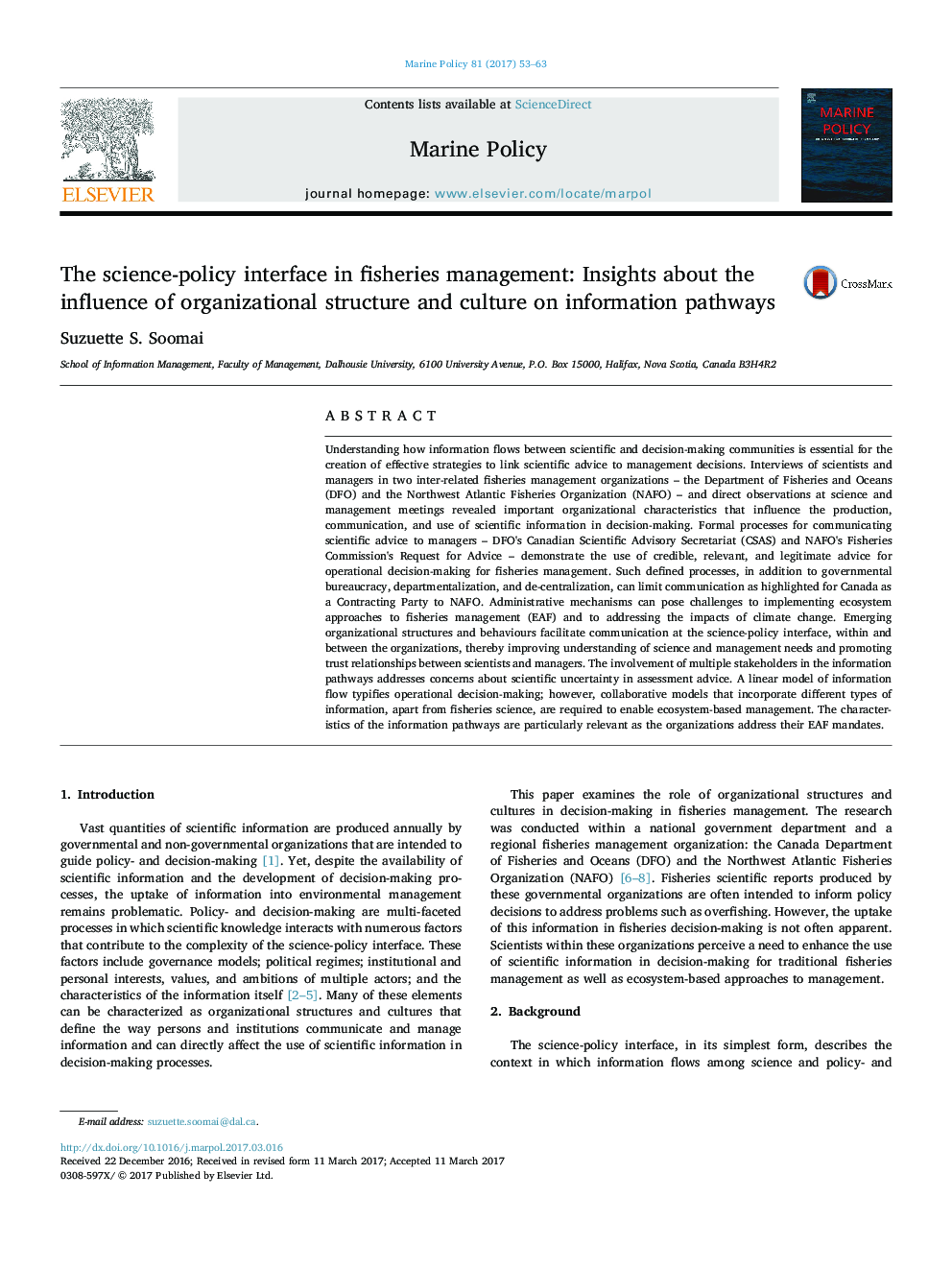| کد مقاله | کد نشریه | سال انتشار | مقاله انگلیسی | نسخه تمام متن |
|---|---|---|---|---|
| 5118012 | 1485498 | 2017 | 11 صفحه PDF | دانلود رایگان |
عنوان انگلیسی مقاله ISI
The science-policy interface in fisheries management: Insights about the influence of organizational structure and culture on information pathways
ترجمه فارسی عنوان
رابط کاربری علمی-سیاست در مدیریت ماهیگیری: بینش در مورد تاثیر ساختار سازمانی و فرهنگ در مسیرهای اطلاعاتی
دانلود مقاله + سفارش ترجمه
دانلود مقاله ISI انگلیسی
رایگان برای ایرانیان
موضوعات مرتبط
مهندسی و علوم پایه
سایر رشته های مهندسی
مهندسی دریا (اقیانوس)
چکیده انگلیسی
Understanding how information flows between scientific and decision-making communities is essential for the creation of effective strategies to link scientific advice to management decisions. Interviews of scientists and managers in two inter-related fisheries management organizations - the Department of Fisheries and Oceans (DFO) and the Northwest Atlantic Fisheries Organization (NAFO) - and direct observations at science and management meetings revealed important organizational characteristics that influence the production, communication, and use of scientific information in decision-making. Formal processes for communicating scientific advice to managers - DFO's Canadian Scientific Advisory Secretariat (CSAS) and NAFO's Fisheries Commission's Request for Advice - demonstrate the use of credible, relevant, and legitimate advice for operational decision-making for fisheries management. Such defined processes, in addition to governmental bureaucracy, departmentalization, and de-centralization, can limit communication as highlighted for Canada as a Contracting Party to NAFO. Administrative mechanisms can pose challenges to implementing ecosystem approaches to fisheries management (EAF) and to addressing the impacts of climate change. Emerging organizational structures and behaviours facilitate communication at the science-policy interface, within and between the organizations, thereby improving understanding of science and management needs and promoting trust relationships between scientists and managers. The involvement of multiple stakeholders in the information pathways addresses concerns about scientific uncertainty in assessment advice. A linear model of information flow typifies operational decision-making; however, collaborative models that incorporate different types of information, apart from fisheries science, are required to enable ecosystem-based management. The characteristics of the information pathways are particularly relevant as the organizations address their EAF mandates.
ناشر
Database: Elsevier - ScienceDirect (ساینس دایرکت)
Journal: Marine Policy - Volume 81, July 2017, Pages 53-63
Journal: Marine Policy - Volume 81, July 2017, Pages 53-63
نویسندگان
Suzuette S. Soomai,
